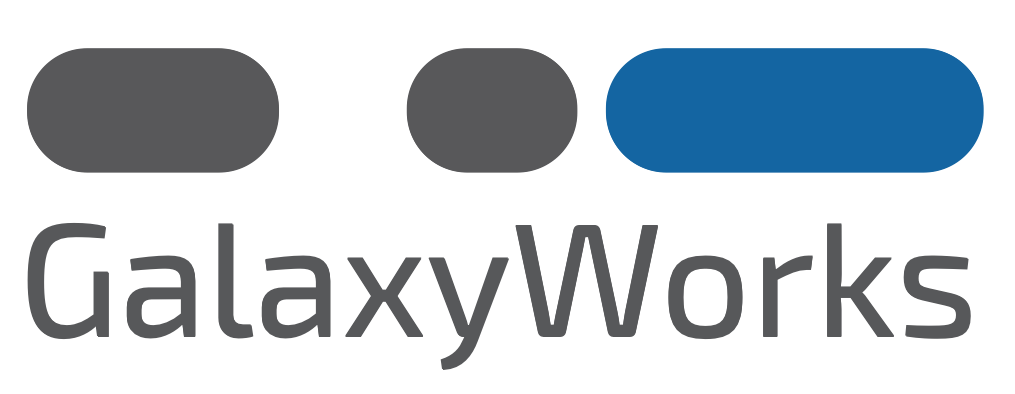GalaxyWorks
A New Company for Providing Commercial Services for Galaxy

GalaxyWorks provides Galaxy Pro, a product offering for commercial organizations looking to use Galaxy for data analysis. Galaxy Pro is a managed version of Galaxy in the cloud with capabilities that public Galaxy servers do not plan to support, such as improved project- and customer-specific privacy, security enhancements, and greater resource capabilities. In addition, Galaxy Pro comes with professional services and support. Galaxy Pro comes with a validated set of tools and workflows as well as customization services to promote customer success. Galaxy Pro is available via subscription.
GalaxyWorks builds upon the existing Galaxy code base by advocating adoption of Galaxy in the commercial space and creating new markets and users for Galaxy. GalaxyWorks will be contributing software products developed through the company back to the open-source community and provide help and support to all Galaxy users. We are absolutely committed to helping maintain and grow the Galaxy open source community.
In summary:
- Galaxy: the open-source, academic software, free servers, and a world-wide community; the Galaxy you know is unaffected and will continue to grow.
- Galaxy Pro: a managed version of Galaxy in the cloud with capabilities that public Galaxy servers do not plan to support, such as improved privacy, security enhancements, and resource capabilities as well as professional services and support. This product is provided by subscription.
- GalaxyWorks (galaxyworks.io): the company behind Galaxy Pro, and which will also contribute software features and user support to the broader Galaxy community.
Why GalaxyWorks?
Our research shows that there is demand from organizations for using Galaxy servers with commercial support. GalaxyWorks will improve adoption of the Galaxy platform in new segments by offering users a managed, commercial service that frees them from maintaining infrastructure and tools. By providing a unified service that allows a user to focus on analyzing the data without the need to manage the Galaxy server, GalaxyWorks will provide an important service for the broader Galaxy community.
Who is GalaxyWorks?
The company was formed by several members of the Galaxy team and community: Enis Afgan, Dannon Baker, Dan Blankenberg, John Chilton, Nate Coraor, Jeremy Goecks, Nuwan Goonasekera, Aysam Guerler, Anton Nekrutenko, Stephanie Pond, and the late James Taylor. In the future, we will explore options for interested members of the Galaxy community to join as well. To help bootstrap the development of the initial product, the company applied for and received federal funding from the NIH in the form of an STTR grant (R41 HG010982).
How will GalaxyWorks interact and contribute to the Galaxy Community?
Transparency, openness, and community are foundational values of the Galaxy project community, and this will not change with GalaxyWorks. Galaxy will remain open source, developed by a world-wide community of contributors and users. GalaxyWorks aims to be a member of this ecosystem and will develop new products and services to explore innovative applications and solutions. GalaxyWorks is committed to contributing software features to Galaxy and the community. Examples to date of software developed by GalaxyWorks and contributed back to the Galaxy open-source codebase include:
- Initial prototype of the workflow invocation reports feature (PR #8543)
- Extensions and improvements to Galaxy’s authentication and authorization functionality (PRs #9115, #9150, #9162, #9168)
- Various usability improvements (PRs #9062, #9508, #77)
All of these features have been adopted and subsequently further developed by the Galaxy community.